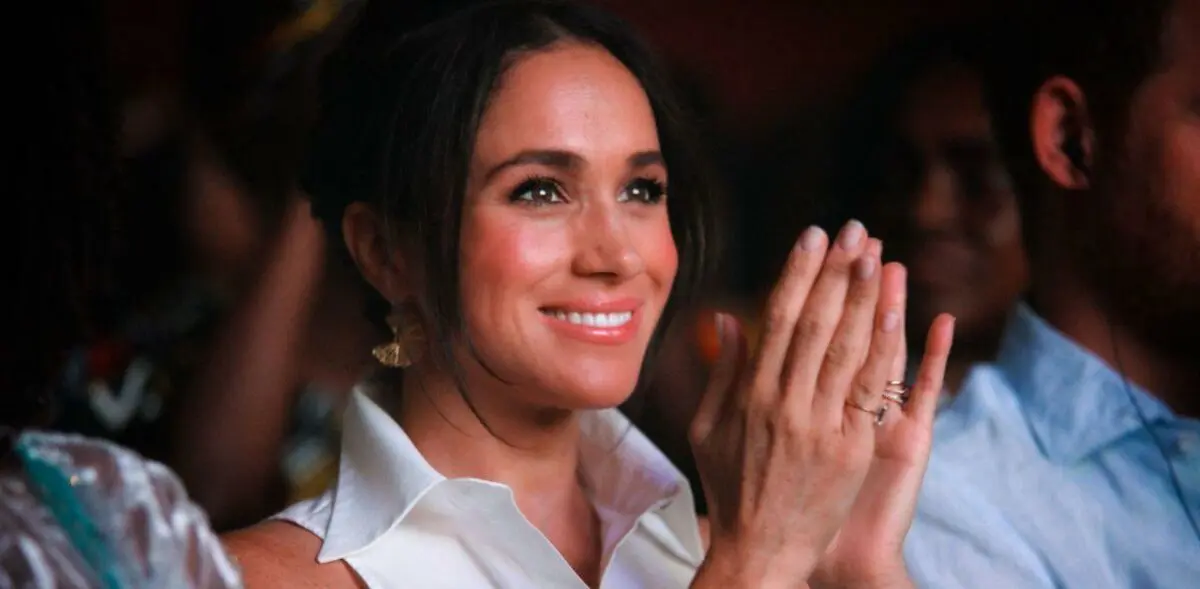In a recent episode of her online talk show, “Happy Hour,” Meghan McCain aimed her sharp tongue at Meghan Markle, particularly focusing on her lifestyle brand named “As Ever.” The conservative commentator did not hold back, expressing her disdain for the brand and its rebranding journey. McCain leveled several criticisms against Markle’s marketing approach, calling her lifestyle “dull” and expressing her disinterest in what she had to offer, including her jam. This commentary not only highlights the ongoing cultural conversation about celebrity branding but also invites a closer look at public figure opinions regarding royalty and lifestyle entrepreneurship.
McCain’s criticisms aren’t just limited to the branding itself; they capture a wider sentiment about celebrity lifestyle brands. As McCain remarked, it’s as though Markle doesn’t live in reality. From branding mishaps to comparing her offerings with other public figures like Kate Middleton, McCain’s words invite discussions about not only celebrity lifestyles but also what resonates with audiences in today’s market.
Criticism of Meghan Markle’s Lifestyle Brand
The recent unveiling of Meghan Markle’s lifestyle brand, As Ever, has sparked pretty fierce debate, notably from Meghan McCain. With her characteristic straightforwardness, McCain made it clear she is not a fan. During this episode, she openly criticized the branding choices, particularly the previously named American Riviera Orchard, which she labeled as a “terrible name.”

Meghan McCain’s Opinions
McCain’s critique reflects a common sentiment among viewers who regard Markle as out of touch. According to her, many people share similar feelings about these types of celebrity enterprises. She stated, “I love people that I can relate to, like every other 40-year-old mom,” indicating a distance between herself and Markle’s offerings. This perspective challenges Markle’s attempts to create a relatable brand amid the glamour of royalty.
As the conversation heated up, McCain reiterated her lack of interest in Markle’s lifestyle brand. “I wouldn’t tell her to do any of this stuff,” McCain proclaimed. This sentiment resonates with many who feel that celebrity lifestyles are often unattainable and disconnected from the average American experience. The call for transparency from public figures like Markle is becoming increasingly loud, suggesting that many see lifestyle brands not only as entertaining but also as potential vehicles of influence that should reflect real-life struggles and experiences.
The underlying criticism goes further, as McCain also suggested that Markle’s previous rebranding attempts have failed to hit the mark. With the repeated shifts into various projects, there’s a growing notion that her ventures lack staying power. Given the challenges she faces, including various trademark issues and public comparison to other brands and figures, Markle’s brand is becoming a focal point in celebrity criticism.
Brand Comparisons and Audience Reception
As Markle faced backlash for her brand’s direction, comparisons with other celebrities and their ventures surfaced. When discussing her own preferences, McCain quickly pivoted to express her admiration for Meghan Markle’s sister-in-law, Kate Middleton. This was not just a casual mention; it came with pointed observations about how Middleton has navigated her public persona and branding without the same level of backlash.
Kate Middleton’s Approach
Kate Middleton’s distinct, more traditional approach appears to resonate better with the public. As McCain pointed out, “I love Princess Kate.” The stark contrasts between the two women’s public personas evoke a broader discussion about how different styles of royalty can impact public perception. Meanwhile, Markle’s attempt to step outside traditional roles does not seem to be going as smoothly.
The ongoing discourse has led to discussions about what consumers genuinely expect from celebrity branding. Many are looking for authenticity and genuine relatability. Having a brand that showcases real-life products—like food and home goods—feels relevant, yet fails to inspire as effectively when the branding feels overly polished or detached from everyday life.
Markle’s lifestyle brand aims to promote a luxurious lifestyle, while simultaneously addressing wellness and self-care topics. Yet this dichotomy feels mismatched when juxtaposed against the present economic concerns affecting many Americans. Many are grappling with rising food costs, and McCain argues that it’s out of touch for Markle to market luxuries that seem exclusive and unattainable. Such criticisms reflect a disconnect between celebrity branding and its intended audience, further complicating Markle’s efforts.
Fashion and Celebrity Criticism
Fashion plays a critical role in the ongoing narrative surrounding Markle’s ventures. Her attempt to present a stylish image has often faced scrutiny, particularly in comparison to figures like Kate Middleton. McCain’s continued remarks about Markle’s choices, which she describes as “dull,” feed into a larger conversation about aesthetic and cultural expectations placed on public figures.

The Public Perception of Celebrity Lifestyles
In this world of celebrity lifestyles, consumers are becoming more selective. The rise of social media has contributed to a culture where public figures must continuously adapt their brands to stay relevant. McCain’s commentary underscores this challenge. The constant need to innovate while staying true to a brand’s core message can be quite demanding.
The pressure placed upon figures like Markle complicates their attempts to be seen as “one of us.” The perception of superficiality often leads consumers to dismiss them outright. Thus, when McCain bluntly states her disinterest in Markle’s offerings, it indicates an acknowledgment that many others likely share similar views. The fallibility of these celebrity brands comes under intensified scrutiny when they fail to connect genuinely with the audience.
Such dynamics ultimately contribute to the ongoing conversation about how celebrities navigate their identities and invest in their brands amidst public criticism. The line between authentic representation and manufactured persona is exceedingly thin, and those who fare poorly in this balance, like Markle, may find their brand image tarnished.
Marketing Lessons from Celebrity Brands
The celebrity criticism directed toward Markle’s brand highlights important marketing lessons. For aspiring entrepreneurs and public figures alike, the example of Markle serves as a case study in branding challenges. The pitfalls she has encountered showcase how vital it is to align branding with consumer expectations.
Adapting to Audience Expectations
Meghan McCain’s critiques offer insight into what audiences are increasingly looking for in a lifestyle brand. Authenticity is the keyword that resonates most. Therefore, if a brand is perceived as unattainable or overly curated, it risks alienating its potential customers. These lessons are essential for those who wish to enter this space, particularly in a climate where people are searching for genuine connections.
Furthermore, the juxtaposition between Markle and Middleton showcases the impact of cultural relatability in strengthening consumer ties. As brands continue to navigate complex landscapes dominated by social media and celebrity culture, the power of accessible and relatable marketing cannot be overstated.
This focus on cultural relatability becomes imperative for cultivating loyalty and community among audiences. Celebrities need to consider their place within societal frameworks and how their branding affects public perception. The ongoing critique around Markle underlines significant marketing narratives about celebrity personas and their influence on consumer behavior.
Ultimately, the discourse surrounding Markle’s lifestyle brand offers a glimpse into the challenges of modern branding, fueled by public criticism and the expectations placed upon public figures. As the landscape of celebrity culture continues to evolve, it remains vital for these personalities to foster authentic connections for their public engagements.
| Celebrity | Brand Name | Critique Category | Consumer Appeal |
|---|---|---|---|
| Meghan Markle | As Ever | Celebrity Criticism | Dull and Unattainable |
| Kate Middleton | Royal Style | Public Admiration | Approachable and Relatable |
| Kim Kardashian | Skims | Innovative Marketing | Inclusive and Trendy |
Understanding the significance of consumer perception in the arena of celebrity lifestyles can lead to more successful branding ventures. If public figures want their brands to be received positively, they should prioritize authentic connections and resonate with audience experiences to effectively differentiate themselves from the multitude of “dull brands” vying for attention in today’s marketplace.
Source: www.newsbreak.com
Hi, I’m Sarah, a 30-year-old journalist with a passion for storytelling and uncovering the truth. I strive to bring important issues to light and connect with my audience through compelling narratives.



